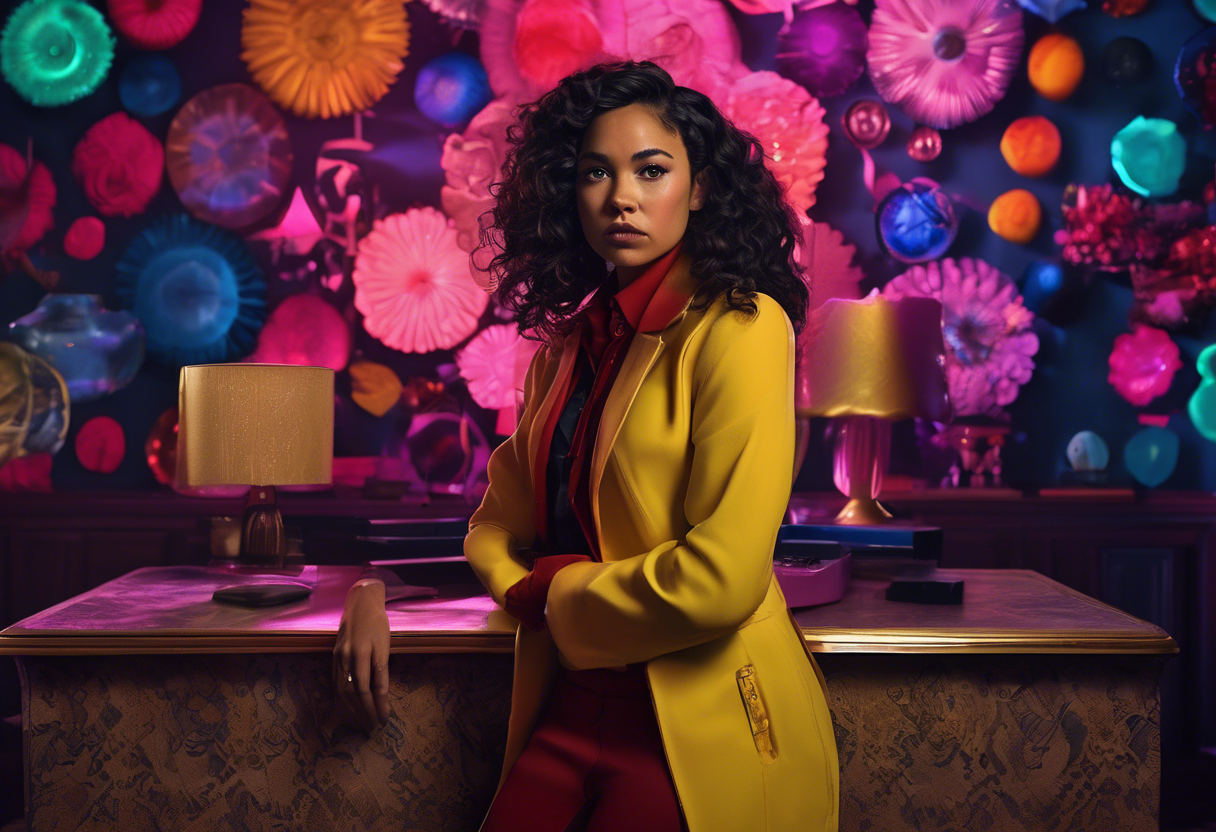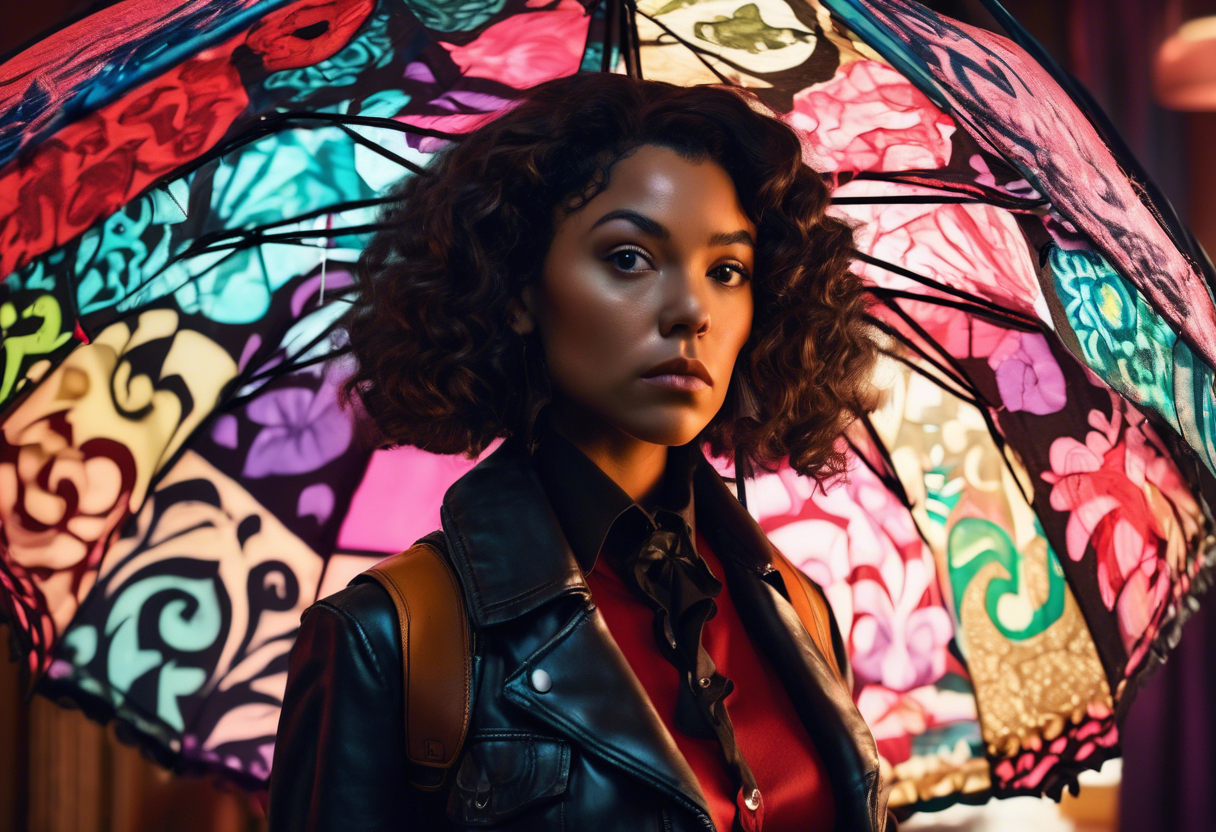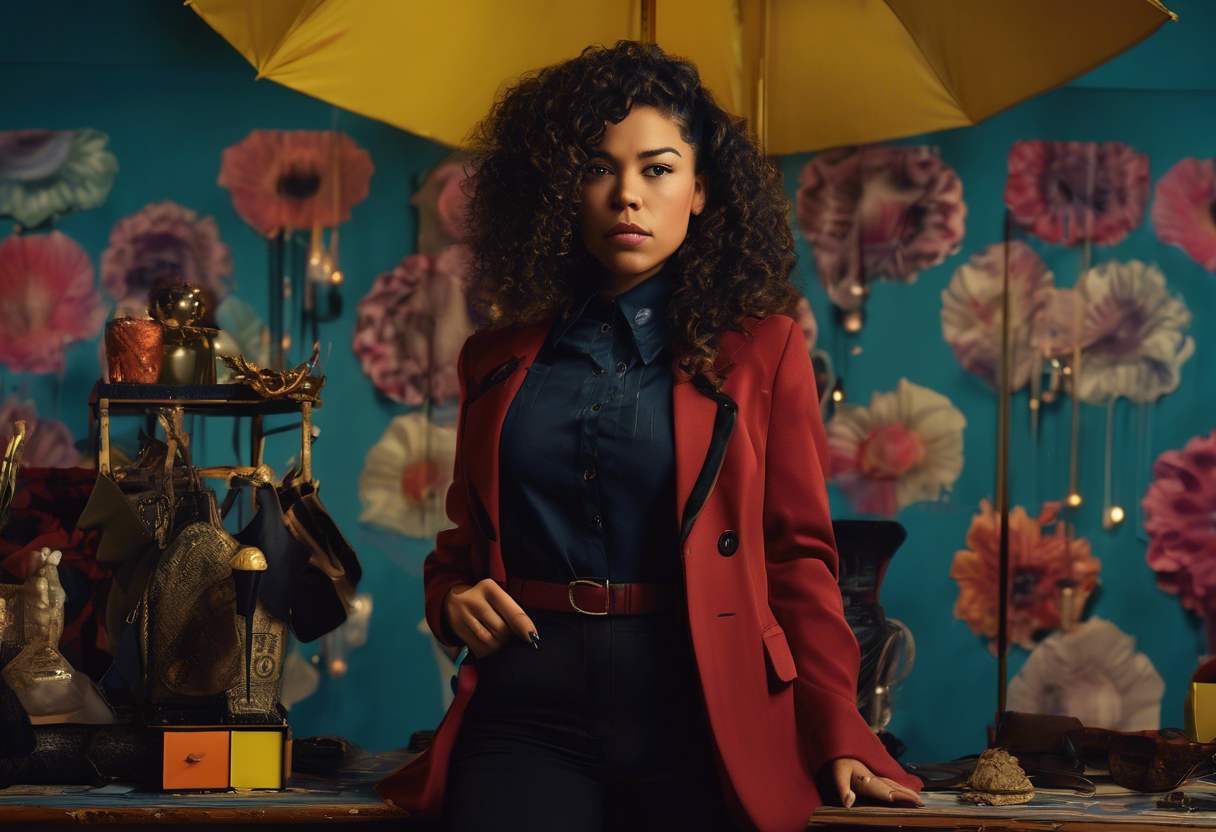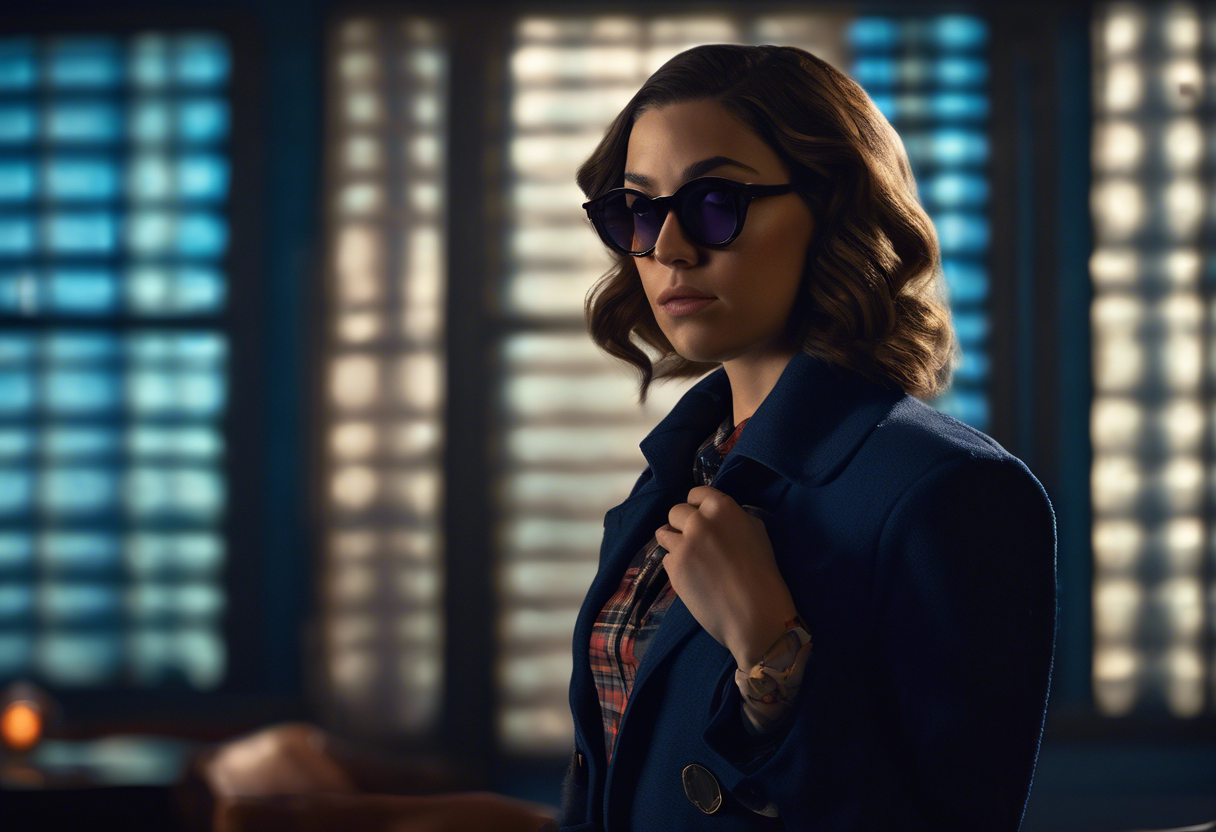Contents
Introduction
Allison Hargreeves, also known as "The Rumor" or "Number Three," is a central character in the Netflix series The Umbrella Academy, based on the comic book series of the same name created by Gerard Way and illustrated by Gabriel Bá. Adopted by the enigmatic Sir Reginald Hargreeves, Allison is one of seven superpowered siblings who were trained to save the world from various threats.
Born with the ability to manipulate people’s actions through her words, Allison’s power is activated by prefacing her statements with "I heard a rumor." This ability makes her incredibly influential, allowing her to control virtually any human[2][5].
Allison’s backstory is marked by her complex and often tumultuous relationship with her family, particularly her father, who exploited her powers for his own purposes. This early manipulation set the stage for many of the psychological and emotional struggles she faces throughout the series[1][5].
Within the narrative, Allison plays a significant role as a character whose journey spans themes of identity, family, power, and personal growth. Her character connects to broader literary traditions of complex, flawed heroes and the exploration of moral ambiguity.
Role in the Series
Allison’s storyline in The Umbrella Academy is multifaceted and deeply intertwined with the arcs of her siblings. In Season 1, she is introduced as a successful actress and mother, struggling to balance her personal life with the responsibilities of her superpowered past. Her relationship with her daughter, Claire, is a pivotal aspect of her character, as she grapples with the consequences of using her powers on those she loves[2][4].
A significant plot point in Season 1 involves Allison’s attempt to reconnect with her brother Viktor, which leads to a series of tragic events, including a violent confrontation with Viktor that results in her being severely injured[2].
In Season 2, Allison becomes more involved in civil rights activism, reflecting her growing awareness of social justice issues and her desire to use her influence for positive change. This season also delves deeper into her marriage to Raymond Chestnut and her continued struggles with her powers[5].
Season 3 sees Allison in an alternate reality where her daughter Claire never existed, exacerbating her grief and anger. This season highlights her complex and often antagonistic relationship with Viktor, whom she blames for the family’s predicament. Her actions become increasingly questionable, revealing a darker side to her character[3].
Throughout the series, Allison’s relationships with her siblings, particularly Viktor, Klaus, and Luther, are central to her development. Her interactions with these characters expose her vulnerabilities, strengths, and the moral dilemmas she faces.
Character Analysis
Allison Hargreeves is a richly nuanced character, marked by both compelling strengths and significant flaws. Her personality is a blend of charisma, determination, and a deep-seated need for control and validation. Her ability to manipulate others through her words makes her both powerful and vulnerable, as she often struggles with the ethical implications of her actions[2][5].
One of Allison’s primary motivations is her love for her family, particularly her daughter Claire. However, this love is often complicated by her own emotional baggage and the consequences of using her powers. This internal conflict makes her a relatable and human character, despite her superhuman abilities[2][4].
Allison’s development throughout the series is significant. Initially portrayed as a somewhat one-dimensional celebrity figure, she evolves into a complex character grappling with identity, morality, and the true cost of her powers. Her journey is marked by moments of both heroism and villainy, making her a fascinating and multifaceted character[3].
Themes and Symbolism
Allison Hargreeves embodies several key themes in The Umbrella Academy. One of the most prominent is the theme of power and its corrupting influence. Her ability to control others highlights the dangers of unchecked power and the moral ambiguities that come with it[2].
Another significant theme is the exploration of family and identity. Allison’s relationships with her siblings and her daughter serve as a backdrop for examining what it means to belong and to find one’s place within a dysfunctional family structure[1][5].
The series also uses Allison to explore themes of race and motherhood, particularly in Season 2. Her involvement in civil rights activism and her role as a mother of a biracial child add depth to the narrative and reflect broader societal issues[2].
Cultural Impact
Allison Hargreeves has had a notable cultural impact since her introduction in the Netflix series. Her character has been praised for its complexity and the way it tackles difficult themes such as power, family, and identity.
Fans have responded positively to her character, appreciating the depth and nuance brought by Emmy Raver-Lampman’s portrayal. The character’s influence extends beyond the series itself, contributing to broader discussions about power dynamics, family relationships, and social justice[2].
In terms of adaptations or spin-offs, Allison’s character has been central to the narrative of The Umbrella Academy, and her storylines have been adapted from the original comic book series. Her influence can also be seen in other media, where complex, flawed female characters are becoming more prevalent[5].
Critical Reception
The critical reception of Allison Hargreeves has been varied but generally positive. Critics have praised her character development and the thematic depth she brings to the series. Her portrayal by Emmy Raver-Lampman has been particularly lauded for its emotional resonance and complexity[2].
However, some critics have noted that Season 4 of the series did not fully capitalize on Allison’s potential, feeling that her character was somewhat mishandled in the final season[2].
The character’s villainous turn in Season 3 was also a subject of discussion, with some critics arguing that it added a necessary layer of complexity to her character, while others felt it was not fully justified by the narrative[3].
Legacy
Allison Hargreeves’s enduring appeal lies in her multifaceted nature and the thematic depth she brings to The Umbrella Academy. Her character has inspired other works and character archetypes, particularly in the realm of complex, flawed female characters.
Her relevance in contemporary discussions about power, family, and identity ensures that she remains a significant figure in popular culture. As a character who embodies both heroism and villainy, Allison Hargreeves continues to captivate audiences and inspire new interpretations and analyses[2][5].
References
- https://umbrellaacademy.fandom.com/wiki/Allison_Hargreeves_(Netflix)
- https://collider.com/umbrella-academy-season-4-allison-hargreeves/
- https://screenrant.com/umbrella-academy-season-3-allison-villain/
- https://umbrellaacademy.fandom.com/f/t/Allison%20Hargreeves%20(Netflix)
- https://en.wikipedia.org/wiki/List_of_The_Umbrella_Academy_characters







